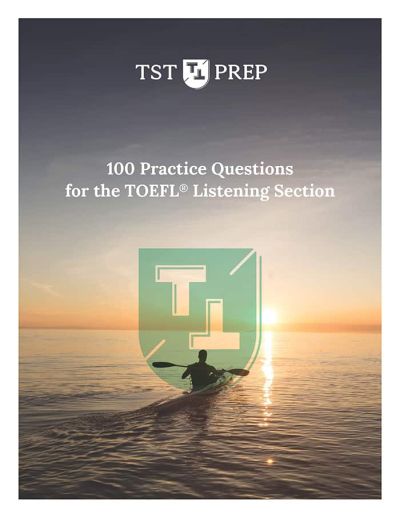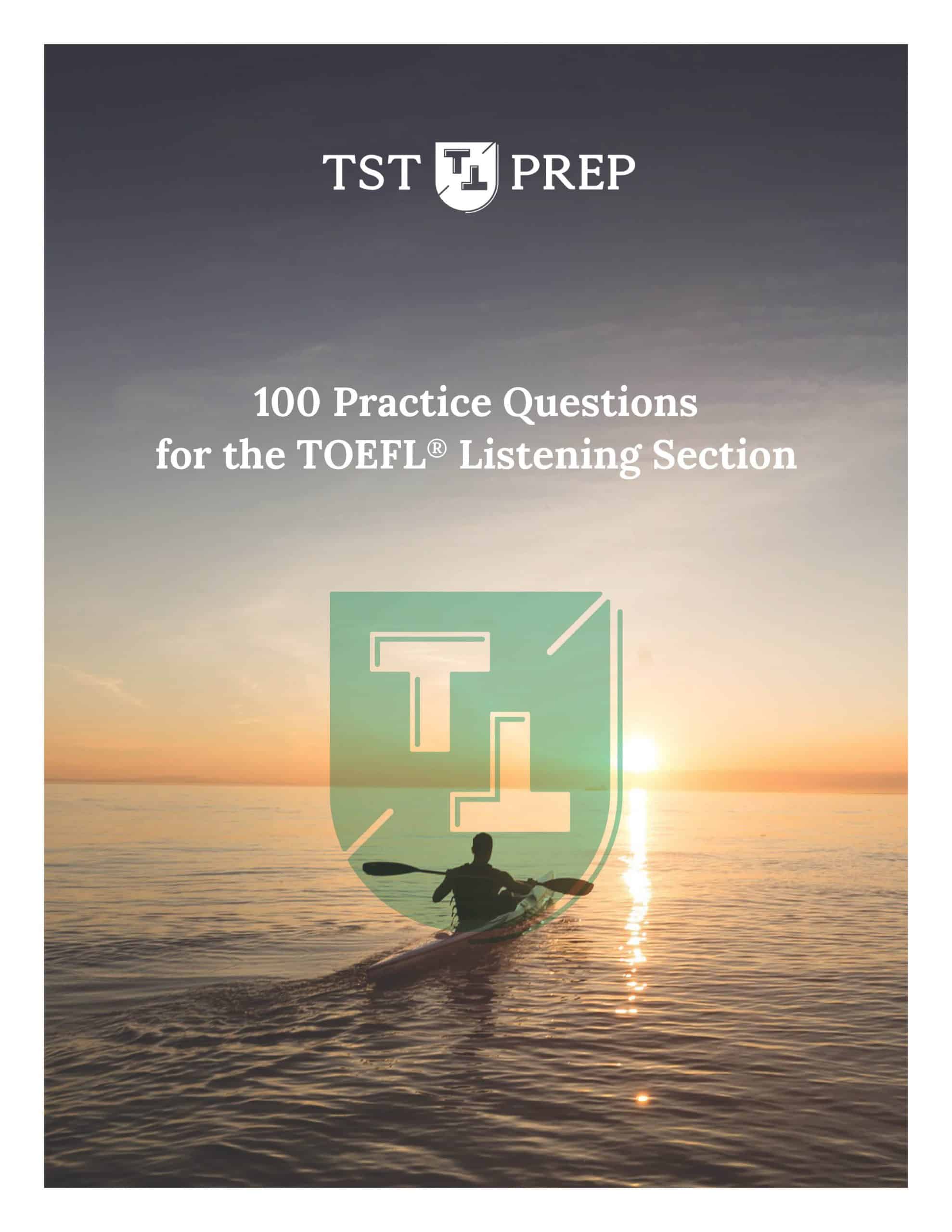
Sign up to download this free
100 Practice Questions for the TOEFL® Listening Section
Get ready for the TOEFL® with
our 100 Practice Questions for the TOEFL® Listening
Want to get all our free online practice materials?
Create a free account and gain access to all PDFs and interactive practice in one place.









26 Comments
Marina
This tips are really good! They’ ve helped me a lot.
thanks very much!
Josh
Thanks for the comment Marina! Much appreciated 🙂
Don’t hesitate to let us know if you have any other questions!
Md Mahmud Hasan
Thank you Josh for giving such details and useful tips for listening . You provide here some unique tips which are really awesome.
Josh
Thanks for noticing! It took a lot of work so I appreciate you noticing 🙂
Vivian M Rodriguez
Phew! That was a lot of useful information.
Very precise and concise.
I also follow your videos on YouTube. They are quite interesting.
A big thanks.
Josh
Hi Vivian and thanks for taking the time to leave a comment, and such a nice one! Happy to help 🙂
Bosire Anyona
What a lesson! Thanks alot JOSH! I have followed and understood the flow of the content. Simple and clear just like a session in class.
Josh
Thank you! I appreciate it 🙂
Ana Karenina Sanchéz Villalobos
Thank you very much for this tips. They have help me a lot. I’ll put them in practice.
Josh
Good to hear and happy to help Ana!
Shakiba
Josh you’re the best, I’ve seen all your YouTube videos.
You’re so funny and your tips are just amazing. My test is in a month (I hope Corona virus gives me more days though). So thank you SO MUCH. Oh and your writing template is a life savor, love you 😡
Josh
Thank you so much for your kind words! Stay safe out there. Hopefully, this all passes soon 🙂
Keren
Thank you so much for this help Sir Josh
Be blessed
Josh
Thanks, Keren! Much appreciated 🙂
Mahbob
Thank you so much for the tips Josh, appreciated. Will be glad if you have such tip to improve reading of TOEFL.
Josh
Hi Mahbob and thanks for commenting! You can always check out our Ten Awesome TOEFL Reading Tips – https://tstprep.com/ten-awesome-toefl-reading-tips/
Carla E.
Thank you all so much for the tips!!!
Josh
Thank you for the support Carla 🙂
Ali
thank appreciate tst prep team. my major problem in this part is getting lost sometimes and i don’t hear some details when i face questions what is solution?
Josh
Hi Ali and thank you for your question. This is a pretty general question so it is hard for me to give any helpful advice. When you have a problem try to make it specific. For example, maybe you have trouble answering vocabulary questions in the TOEFL Reading. Once you make it specific, try to come up with some solutions to your problem or ask a teacher for some guidance.
This is the best way to overcome any TOEFL-related challenge. I hope that helps!
Aaliyah
Josh MacPherson…first of all, I congratulate you on being such a wonderful teacher. You definitely know your subject very well. I can’t thank you enough for providing such amazing content. It is lucid, specific, and well structured. Your videos clear major doubts and above all crashes” TOEFL Phobia”. It gives a head start to a student and then prepares him/her in a planned manner for the exam. You perfectly fit into one of the quotes, “The teacher who is indeed wise does not bid you to enter the house of his wisdom but rather leads you to the threshold of your mind… (Khalil Gibran).
Josh
Wow, thank you so much for leaving such a kind and considerate comment. It’s rare to read something so nice. Thank you for taking the time to write that. It really means a lot. However, you did all the work! You should congratulate yourself on working so hard and learning about all this TOEFL stuff. It’s not a very exciting topic ;).
Alaa
WOW, what great content. They were great tips honestly. Thanks from heart, I really appreciate your great work and I really benefited from them. Thanks a lot, teacher you really deserve a big clap.
Josh
Thank you so much for the comment, Alaa. Let me know if there is any other way I can help.
Cijie Zhang
Thanks for your tips, especially the “Be an active listener”. But I also have some problems of “Understand the passage structure like a professor”, I don’t know how to identify the structure at once, and how to deal with each structure (the same problem also in answer type, I don’t know how to answer each type). Do you have any further suggestions?
Finally, thanks for your help with the articles and videos.
Josh
Hi there and thank you for your questions. I do give advice on all of the issues you mentioned, but it is a bit difficult to explain in a comment, which is why I created the TOEFL Score Builder Course with videos explaining all of these ideas. I will leave a link here to it – https://tstprep.com/store/toefl-score-builder-program/